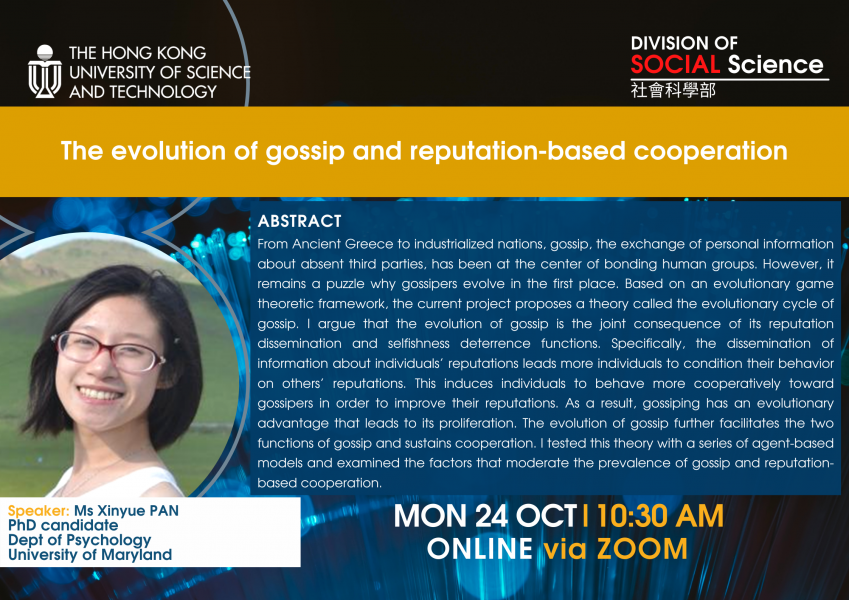From Ancient Greece to industrialized nations, gossip, the exchange of personal information about absent third parties, has been at the center of bonding human groups. However, it remains a puzzle why gossipers evolve in the first place. Based on an evolutionary game theoretic framework, the current project proposes a theory called the evolutionary cycle of gossip. I argue that the evolution of gossip is the joint consequence of its reputation dissemination and selfishness deterrence functions. Specifically, the dissemination of information about individuals’ reputations leads more individuals to condition their behavior on others’ reputations. This induces individuals to behave more cooperatively toward gossipers in order to improve their reputations. As a result, gossiping has an evolutionary advantage that leads to its proliferation. The evolution of gossip further facilitates the two functions of gossip and sustains cooperation. I tested this theory with a series of agent-based models and examined the factors that moderate the prevalence of gossip and reputation-based cooperation.
Xinyue Pan is a doctoral candidate in the Department of Psychology at the University of Maryland, College Park. She uses laboratory experiments, observational data, and computational models to understand the emergence of social norms and group dynamics. Inspired by the science of complex systems and behavioral ecology, she examines how human behaviors adapt to and shape their ecosocial environment. Xinyue is also dedicated to introducing computational methods to social science.
Remarks
- ZOOM link will be sent via email, for HKUST members ONLY
- Please use your HKUST ITSC account to join the zoom meeting.
- This meeting is being recorded. By joining, you are giving consent for this meeting to be recorded.

